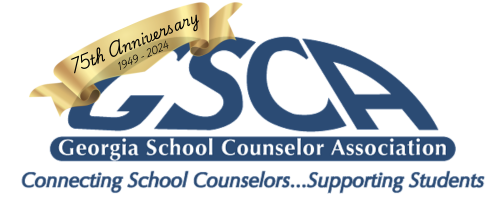GSCA Position Statement: Parents Rights Bill
This position statement was developed in opposition to HB 1178 and SB 449 which were introduced during the 2022 legislative session.
The Georgia School Counselor Association supports school counselors in Georgia as they promote student success. Georgia school counselors are advocates, leaders, collaborators and consultants working with all stakeholders to provide equitable educational access and success for all students. (ASCA 2016). Parents and guardians of our students are school counselors’ most valuable collaborators and think partners.
Ethically school counselors:
- Recognize that providing services to minors in a school setting requires school counselors to collaborate with students’ parents/guardians as appropriate.
- Respect the rights and responsibilities of custodial and noncustodial parents/guardians and, as appropriate, establish a collaborative relationship with parents/guardians to facilitate students’ maximum development.
- Are culturally competent and sensitive to diversity among families. (ASCA 2016).
As such, school counselors work in collaboration with parents/guardians and other stakeholders to allow opportunities to volunteer when appropriate as well as seek insight and feedback from the parent/guardian perspective via school counseling advisory councils. The purpose of a school counseling advisory council is to provide feedback on program goals, review program results, make recommendations, and advocate for the school counseling program.
School counselors in Georgia have obtained a Master's degree or higher in the field of school counseling. They have the training and experience to develop, implement, and assess comprehensive school counseling programs that are developmentally appropriate and supportive for a diverse student population, much in the same way that teachers have training and experience to develop, implement, and assess their own teaching and learning within the classroom. This training allows school counselors to meet the needs of their specific student populations and adapt lessons and initiatives in the school that fit the lived experiences of their students and the diverse society they live in.
As the Georgia School Counselor Association places importance in parent/guardian collaboration, we also see concerns with legislation and policies that could create an environment that is contrary to collaboration with stakeholders and undermine the training and experience of educators. Additionally, they create a learning environment where a small group of parents/guardians could determine what is taught or discussed in a classroom that has students of diverse backgrounds and needs. Creating lessons cannot be done effectively, efficiently or with students in mind only at the beginning of a grading period. Educators learn their students personality, knowledge, skills, and needs that help shape the curriculum taught. These bills take away collaboration and limit the ability to shape lessons to fit the needs of all students throughout the grading period.
School counselors will continue to champion for their ethical obligation to collaborate with all stakeholders and to use their training and professional experience to develop, implement and assess lessons and curriculum that fits the needs of all students to support their academic success, prosocial development, emotional wellness, and postsecondary readiness.
